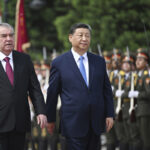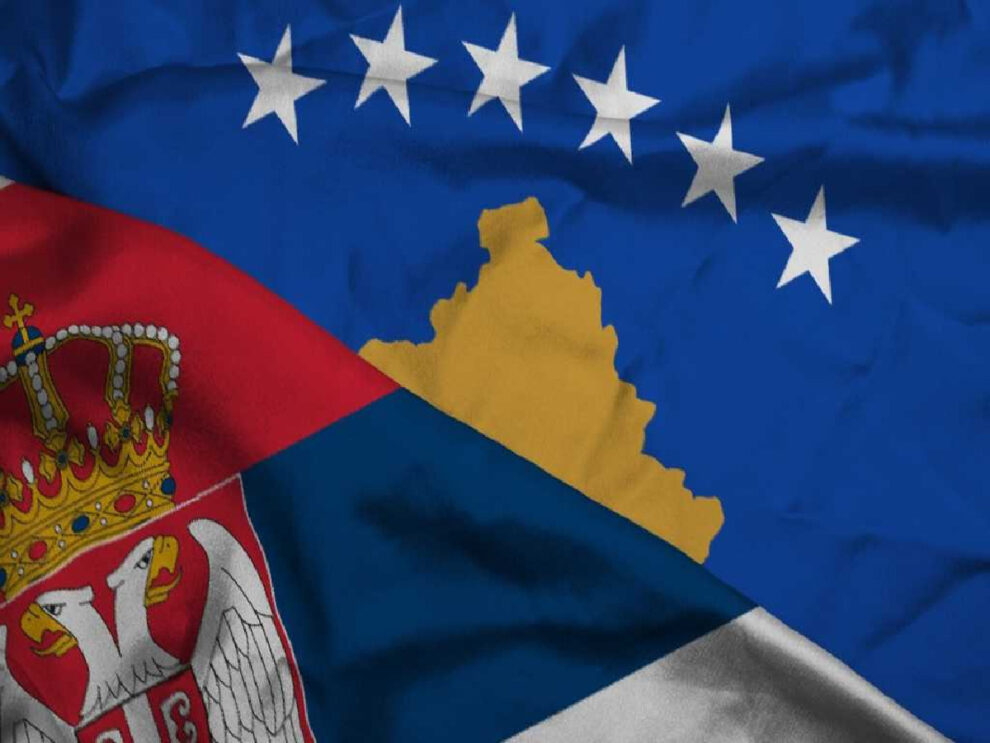Despite the great pressures of the EU and the USA who sponsored the new negotiation between Serbia and Kosovo on Monday 27/2 in Brussels and despite the assurances given by the European officials who handled the issue (the EU High Representative for Foreign Policy Josep Borel and the Union’s Special Envoy for Kosovo Miroslav Lajčak) for the green light given by both sides to an 11-point agreement in principle, the talks did not come to fruition as it turned out after only a few hours.
The leaders of Serbia and Kosovo denied reports that they wanted to “unite” them during a meeting in Brussels, exchanged blame for the impasse and said there were many points to be settled. In the end, the question is whether it was “wishful thinking” by the West (mainly due to their strong desire to neutralize Russia’s influence in the Western Balkans with such an agreement) or whether the positions of the two parties were indeed close, but the leaders they must still show another face for internal reasons.
However, the president of France, Emmanuel Macron, the chancellor of Germany, Olaf Scholz, and the prime minister of Italy, Giorgia Meloni, had sent a joint letter 48 hours before the meeting to the president of Serbia, Aleksandar Vucic, and to the prime minister of Kosovo, Albin Kurti. by which they were encouraged to accept the European plan. The same request was expressed by the State Department’s top adviser, Derek Sole, in a telephone conversation he had with both of them.
Mox PlayerAfter denying that there was finally convergence on the 11-point Plan promoted by the Union, President Vucic, addressing Serbian public opinion, pledged never to recognize Kosovo and added that he has no intention of helping it join the United Nations . On the other hand, for the prime minister of Kosovo, Albin Kurti, any agreement should provide for the recognition in one form or another of his independence.
The relevant contentious issues are included in Article 4 of the promoted Agreement, which states: “The contracting parties agree on the condition that none of them can represent the other party in the international sphere or act on its behalf. Serbia will not oppose the accession of Kosovo to any international organization. Neither party will block, nor encourage others to block, the other party’s progress towards the European Union.”
In the end, it is an up-and-down reproduction of the “Two Germany Model”, which on the Serbian side contains the lure of creating a Union of Serbian Municipalities within Kosovo, thus granting the Kosovo Serbs a degree of autonomy. The specific issue is included in Article 7 of the Plan, which states:
“Both sides are advocating for specific arrangements to be made to ensure an appropriate level of self-government for the Serb community in Kosovo and the ability to provide services in certain specific areas, including the ability to receive financial assistance from Serbia.” However, it should be noted that relevant provisions already existed in the Brussels Agreement of 2013, with which a temporary modus vivendi was achieved between Belgrade and Pristina, but which were never implemented. Therefore, it is questionable what are the chances of creating such a Union of Municipalities now, and even without a comprehensive settlement.
However, despite the failure of the Brussels process, a new meeting of the leaders of Serbia and Kosovo on the same issue has again been scheduled under the auspices of the EU for March 18 in Ahrida, North Macedonia. And the questions that are raised are what better chances can the repetition of such a meeting have within three weeks, but also what can mean a new failure? However, violence is never far away. It was only a few months ago that last summer things almost came to a head over a seemingly mundane issue: should ethnic Serb Kosovars continue to use Pristina or Belgrade license plates, as they had been doing until now?
Speaking in general about a normalization of the differences in all the Western Balkans (which include the conflicts of Northern Macedonia with Bulgaria, the always disorderly situation in Montenegro which has elections on March 19 and of course the big problem of Bosnia) so far a the main lure was the European perspective of all the countries in question. However, this European future is increasingly distant for the Western Balkans, and their accession negotiations may now become more complicated, after the European candidacies of Ukraine, Moldova and, at a later stage, Georgia.
Source: Defence Point
















